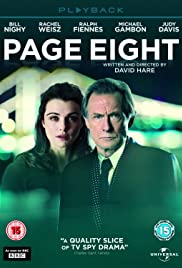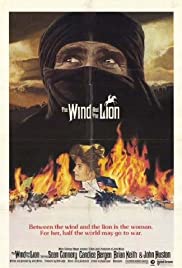
With a duty to deliver every last letter before Christmas, the beloved quartet of post office detectives—Oliver, Shane, Rita and Norman—are working around the clock to redirect Santa’s mail just as Oliver runs into his former Sunday school teacher. When they receive an emotional last-minute plea not meant for Saint Nick, but instead written to God, they must delay their own travel plans to make sure one little girl doesn’t lose her Christmas joy—something Oliver and Shane are also struggling to find as they each face painful holiday memories. With a little guidance from a mysterious post office volunteer, Jordan, the Postables are more surprised than anyone to discover they’ve been a part of more than one miracle on this Christmas Eve.
You May Also Like

At the moment of Myeisha’s death at the hands of police, she guides us inside her mind and muses over the life she will be leaving behind, told through hip-hop, spoken word poetry, and dance. Inspired by the 1998 police shooting of California teen Tyisha Miller.

Retired military officer, now Military History professor, Caroline Upton is enlisted to assist antiques store owner, Russell Carlisle in finding the family of WWII Army officer Orin Newton before Christmas with the hope of returning precious personal artifacts – Orin’s dress uniform, medals, and a stack of love letters from his beloved Alice who waits for him back home. Epaulettes and insignia provide initial clues, though the search seems to dead end when Caroline discovers Orin was captured and listed as MIA. Caroline and Russell then search the love letters for clues as to what happened to Orin and whether he ever made it home to Alice.

Two narratives clash violently in this meditative portrayal of disaffected youth set in a graveyard of abandoned mobile homes known as Sunset Edge. We follow a group of four aimless, suburban teenagers – they skateboard the park, sleep in the sun, and rummage through the decaying remains completely unaware that this is where a lonesome teen is confronting a horrific past. Day turns to night, people disappear, and the secrets of Sunset Edge are revealed in a paralyzing finale.

Time seems to stand still in a village in the Galician coast. Everybody there is paralyzed although we can still hear their voices: they talk about ghosts, about witches, about monsters. Three women arrive in the village to find Rubio, a sailor who has recently disappeared in the sea.

Page Eight is lovingly turned, with elegant writing, a flawless cast and a heartfelt message from writer/director David Hare about the danger zone where spies and politicians meet. The tension builds gently as we follow the fortunes of Johnny Worricker, a jazz-loving charmer who works high up at MI5 as an intelligence analyst. It’s a part made for Bill Nighy and he purrs out bon mots with a weary panache that women 20 years younger find irresistible. One such is his neighbour, Nancy Pierpan (Rachel Weisz), in a Battersea mansion block. The question for Johnny is whether her interest in him is genuine or hides something darker. As his boss (Michael Gambon) puts it: “Distrust is a terrible habit.” Questions of trust, honour and friendship rumble through the play. The characters exchange oblique repartee as a plot about a damning dossier unwinds. It’s not to be missed.

60 women are waiting for their execution on death row. Who are they? We decided to follow five of them. Dive in these women’s lives full of horror, hope, death, and love, in one of the most terrible places in the USA, death row.

Sam is an emotionally reserved college freshman going through a very rough time. But when a tragedy occurs, he learns to express himself clearly.

Directed by some of most well known Chinese-language directors of the time, the portmanteau film Four Moods was an attempt to alleviate Li Han-hsiang’s financial troubles during the late 1960s. Arguably one of his best works, King Hu’s short Anger is an adaptation of the famous Peking opera San Cha Kou; set to opera instrumentation and stylishly shot, the film deftly captures the tense showdown between political schemers, avengers and vagabonds inside an inn. Li Han-hsiang’s Happiness, inspired by the Strange Tales of Liaozhai, tells a tale of reprieve for a kind-hearted ghost, while Pai Ching-Jui’s Joy and Lee Hsing’s Sadness both explore the fateful encounters between mortal men and ghostly women.

At the beginning of the 20th century an American woman is abducted in Morocco by Berbers. The attempts to free her range from diplomatic pressure to military intervention.

Mitsuo, unhappy in his new job as a shoe salesman, is invited to a festival and is introduced to a friend’s sister. Tora-san meanwhile helps an injured housewife on her yearly vacation.

14-year-old Amina from northern Ghana gets sent away to Burkina Faso by her mother to prevent her marriage to an elderly man. However, fate intervenes in the form of kidnappers who bring her to Accra. What trials and tribulations await Amina in the slums of Accra? Will she ever find a way to escape?